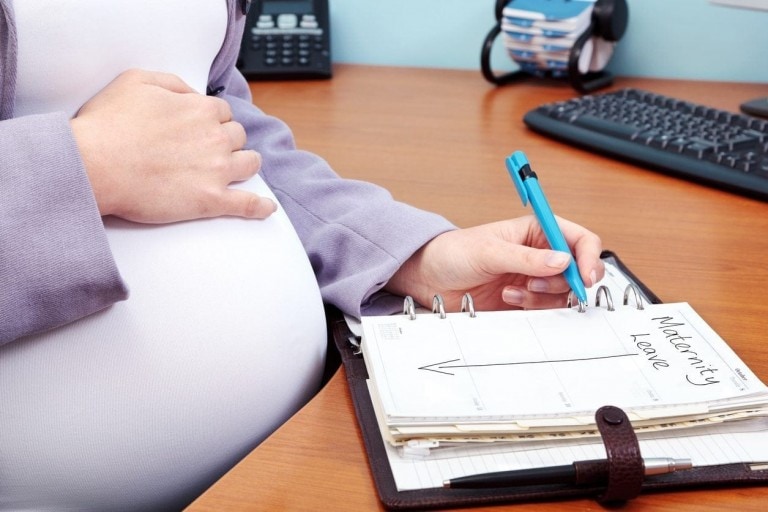Stress is a normal part of life. As a pregnant working woman, you need to be aware of the amount of stress in your life and ensure that it isn’t adversely affecting your and your baby’s health. This is the time in your life when you need to make time for yourself and recognize when things are starting to escalate and when you’re feeling overwhelmed. I’m sure during your pregnancy, there are times when you’ve had trouble sleeping or had headaches, stomachaches, or heartburn. If you’re experiencing these symptoms and getting sick constantly, perhaps your body is trying to tell you that you’re under too much stress. Controlling stress at work can be challenging, and it is even more important to do so during pregnancy.
10 Tips for Controlling Stress at Work During Pregnancy
It’s common to experience these things occasionally, so here are some ways to help you control stress at work during your pregnancy.
1. Organize Your Workload
Tasks are more manageable if you deal with them one at a time. I have the problem of thinking of all my tasks and everything on my plate simultaneously. Definitely not healthy. This can be a lot for your mind and body to handle. When you have too many things to do at work, draw up a plan of attack in order of priority. Complete the tasks one after the other, and soon, you’ll find the weight lifting from your shoulders.
2. Solve the Problems
It’s best to begin identifying the actual problems you’re experiencing. If you’re constantly overwhelmed at the office, consider why you tend to take on so much. I always do better when I devise several ways to solve the problem (or each problem), write those plans down, and determine the best plan of attack. You must put your plan(s) into action so you can evaluate them to see if they’re working. If they aren’t helping, you can devise plan B.
3. Avoid the Source of Stress
Once you identify the actual problems, you should begin to recognize the source of your stress. If it’s a colleague or your boss, avoiding your source of stress can be challenging, but at least you can be better prepared and limit the interactions.
A little thing that you can do to help is clean up the clutter on your desk. Doing this can also help remove the clutter from your mind and help you feel like you can breathe better. If you’re expecting, this is also the time to give up stressful volunteer tasks. People should understand that you have a lot going on now that you’re pregnant, so you need to take this time to relax and focus on yourself after busy workdays.
I also recommend not making any major changes in your life until your baby is born. This can be a huge source of stress. For some reason, every pregnant woman thinks it’s a great idea to move into a new house, renovate their current house, or do another major project. This can be a lot for you and your baby to handle. Also, beware of the holiday season and let someone else do the work. Save yourself the stress.
4. Return Stress To Its Rightful Owner
Some of the aggravation you feel is sometimes someone else’s problem. Tell your partner you can’t go to every work event or entertain every client with him, tell a coworker to learn the system instead of always asking you, and start saying no to the other people who lean on you. Explain that you need to take care of yourself for your baby, and eliminating stress, including at work, is a big part. You have more than enough on your plate, so don’t feel guilty about learning the art of saying no.
5. Try Physical Activity
This sounds even more exhausting, but exercise is a wonderful stress reliever. Find a safe workout during pregnancy, like prenatal yoga, pilates, barre, and others, and start incorporating that into your week. Even taking a stroll around your workplace during the day can help relieve stress. It’s amazing what a little fresh air can do.
6. Talk About It
Communication is always key. Share your worries and concerns with your partner, a coworker, or a friend. It may or may not lead to a solution, but you’ll feel much better after talking about it, brainstorming, and expressing your thoughts. If you’re having bigger issues/stresses at work, I recommend seeking a professional’s counsel.
7. Don’t Hold Back the Tears
Crying is a healthy way to relieve anxiety. I’m not saying that it’s a good idea to burst into tears in front of everyone at work or in front of a client, but don’t feel bad if you need a moment to shed some tears if you’re alone at your desk. Hormones are REAL during pregnancy, and letting them out is healthy. Sometimes, letting it out can help you feel better and move forward with the day.
8. Accept Differences and Things You Cannot Change
Some problems cannot be solved, and some problems’ solutions are way down the road. Don’t let it bother you if coworkers do things differently from the way you do. You must learn to let it go, relax, and let things roll off your shoulders to prevent stress at work. There’s more than one way to achieve a goal, so it’s time to accept differences and new ideas. Cooperation is always better than confrontation.
9. Keep Up a Social Life
Your life is about to change forever. Take this time to visit friends, attend events with colleagues, and dine with another couple. Once your little one arrives, it will be a while before you can do these things again uninterrupted. So make time for fun! That always relieves stress.
10. Get Plenty of Sleep and Rest and Eat Healthy
It’s common to feel tired during your pregnancy. If you don’t want to be too exhausted at work, ensure you get enough sleep at night to feel energized for your day. Also, eat well. Stress can deplete vitamins quickly, so a balanced diet is essential. Don’t forget to take those prenatal vitamins, too!
For obvious reasons, know that drugs and alcohol are temporary anxiety relievers — they will not permanently remove the sources of stress in your life or at work. That doesn’t take into consideration what these substances may do to you and your baby. Never drink alcohol or take medication without a doctor’s consent or prescription.

























